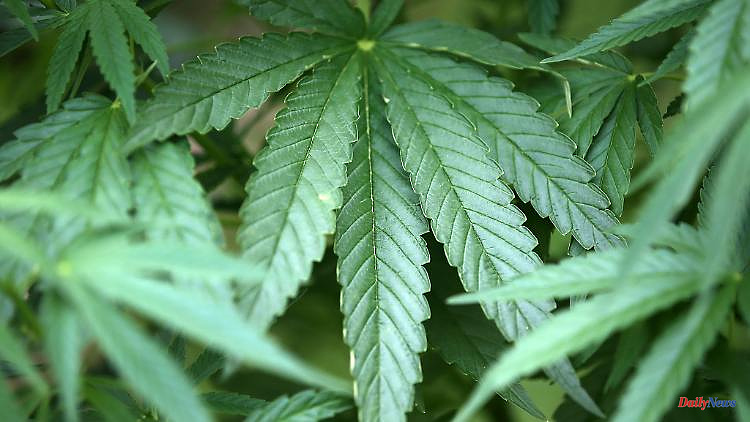At the meeting of the cannabis industry, there is a gold rush atmosphere. A number of companies hope for big business after legalization. But it won't be that quick. Because the drug officer is asking for patience when the drug is released.
Heyday for the cannabis industry - Hundreds of industry representatives from dozens of countries came together in Berlin for what the organizers say is Europe's largest cannabis industry get-together "ICBC". Participants made it clear that they expect large sales jumps as a result of the planned legalization of cannabis in Germany.
The federal drug commissioner Burkhard Blienert was also invited. He asked for patience with the legislation and emphasized the importance of health and youth protection. "Yes, there is a huge euphoria in our industry," said Jürgen Neumeyer from the cannabis industry association. He spoke of possible annual sales in the "clear double-digit" billion range. "We will not become the German automotive industry, but of course it is a popular product."
Conference participants put the annual requirement for Germany at 400 to 600 tons of cannabis flowers. This creates a gold rush mood. From manufacturers of cannabis oil vaporizers, to companies specializing in seeds and greenhouse lighting, to software for labeling and tracking plants and efficient distribution, to law firms and manufacturers of cannabis-based medicines, there is an entire industry at stake. hoping for good business.
For example, Hidde Siers, who advertises a Dutch fertilizer manufacturer with his stand at the conference: "It's going to be big," he says. "If Germany moves, all of Europe will do so." Kevin Clarke, who is a few stands further promoting special cannabis harvesting machines from a US manufacturer, expects further "significant" increases due to the release of cannabis in Germany after major growth spurts due to liberalization in many US states.
According to ICBC founder Alex Rogers, deals worth "hundreds of millions of dollars" will be initiated at the two-day meeting. "You are the future of Europe's cannabis industry!" he calls out to the audience like a whip at the opening. But then the Federal Drug Commissioner Burkhard Blienert caused a bit of disillusionment with his speech.
Legalization won't happen that quickly. It is a complex project. According to Blienert, a lot still needs to be clarified. Who is allowed to plant where? How is product safety guaranteed? How about taxation? Should there be upper limits for the active substance content (THC)? What will the planned specialty stores look like? Should it also be sold in pharmacies and also online?
"We want to make it work," Blienert said. He doesn't want a law that has to be corrected afterwards or still fails at one or the other hurdle. According to him, the traffic light coalition wants to present a draft law at the end of the year or early next year. "It's 2023 in Parliament," Blienert said. In view of all the questions that still need to be clarified, entry into force before 2024 seems rather unlikely. Blienert emphasized that he is primarily concerned with health and youth protection and called on companies in the industry to help, for example with a view to advertising and marketing.
"No one can ignore the fact that the consumption of intoxicants, that the consumption of psychoactive substances in the case of abusive consumption, like many other substances, is harmful to health." With regard to the planned release of cannabis, he also spoke of a "giant step" in drug and addiction policy in Germany. "What is now has failed."
A study by competition economist Justus Haucap from the Institute for Competition Economics (DICE) at the University of Düsseldorf showed last year that legalization could bring the state 4.7 billion euros a year. Included in the bill are additional tax revenues and Social Security contributions from the legalized drug trade and savings in law enforcement and the judiciary.












